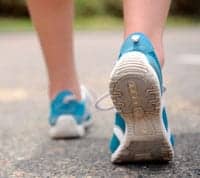by Anthony J. Brown, MD
Last Updated: 2007-07-27 10:39:20 -0400 (Reuters Health)
NEW YORK (Reuters Health) – In a new study, French researchers estimate the energy intake of hospitalized elderly patients in acute care units and find that it is just sufficient to meet their minimal energy requirements. The group believes such patients could benefit from higher caloric intake.
Malnutrition is known to be common among elderly patients hospitalized with acute illness, due in part to anorexia and low energy intake. Exactly how much energy these patients expend and what their energy requirements are, however, have been unclear.
As reported in the Journal of the American Geriatric Society for July, Dr. Patrick Ritz, from University Hospital, Angers, and colleagues assessed energy intake and resting energy expenditure (REE) in 90 acutely ill patients ranging in age from 65 to 99 years.
Food intake was recorded over a 3-day period and indirect calorimetry was used to assess REE in the fasting state. REE was multiplied by the physical activity level constant (1.42), which also accounts for dietary-induced thermogenesis, to determine the energy requirement.
The REE was roughly 19 kcal/kg/day in men and woman, the investigators found, but it was higher in malnourished patients. Specifically, the REE for patients with a body mass index no greater than 21 was 21.4 kcal/kg/day, whereas for those with a BMI over 21 it was 18.4 kcal/kg/day.
Energy intake was 1.29-times higher than the REE, so it fell short of energy requirements by 205 kcal/day, on average.
The Harris-Benedict equation, which has proven useful in predicting REE in older patients with pressure ulcers, was also found to be an accurate predictor in the current study group, which is more representative of hospitalized elderly patients in general.
The results indicate that the energy intake in hospitalized elderly patients is equivalent to the amount needed to sustain vital functions in healthy individuals, the authors conclude. "This is notably inadequate in elderly patients in acute care units," they point out.
"Spontaneous food intake being just sufficient to match minimal requirements, higher calorie intakes are likely to be beneficial for hospitalized elderly patients in acute care units," Dr. Ritz’s team concludes.
J Am Geriatr Soc 2007;55:1085-1089.
Copyright Reuters 2007. Click for Restrictions


